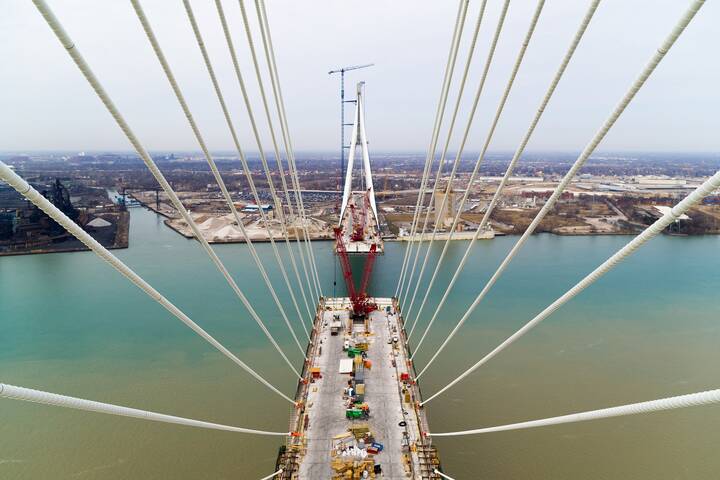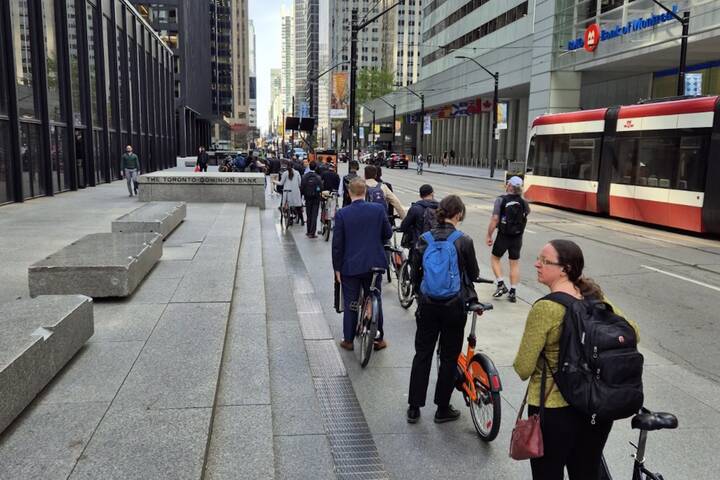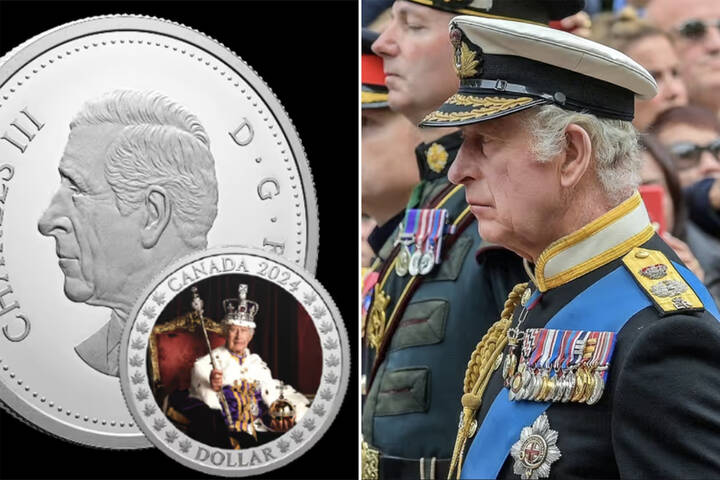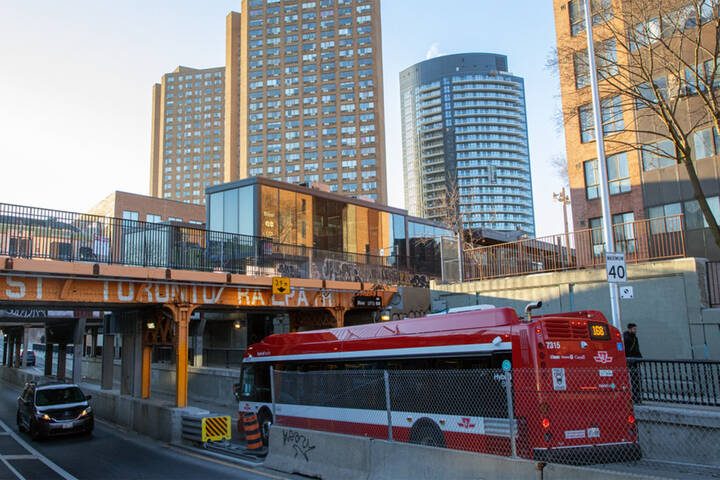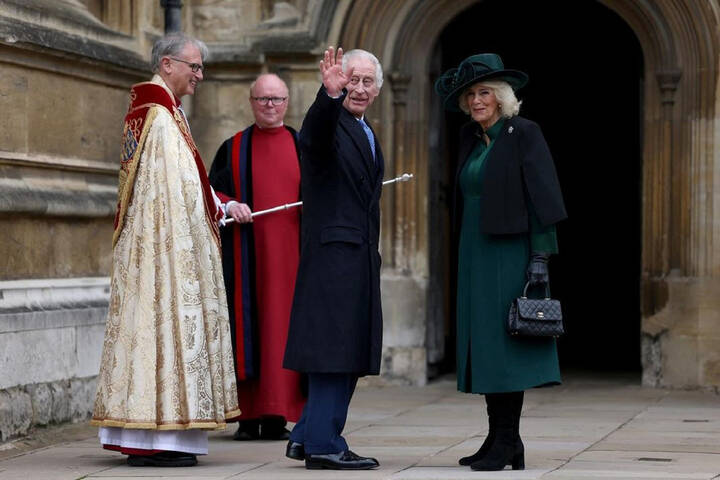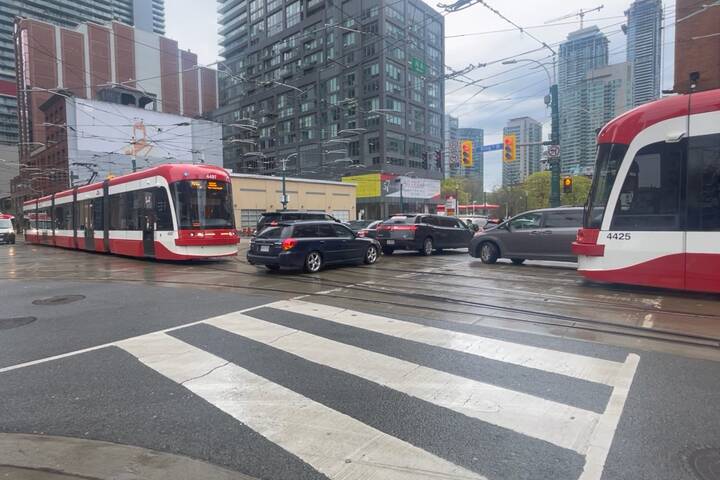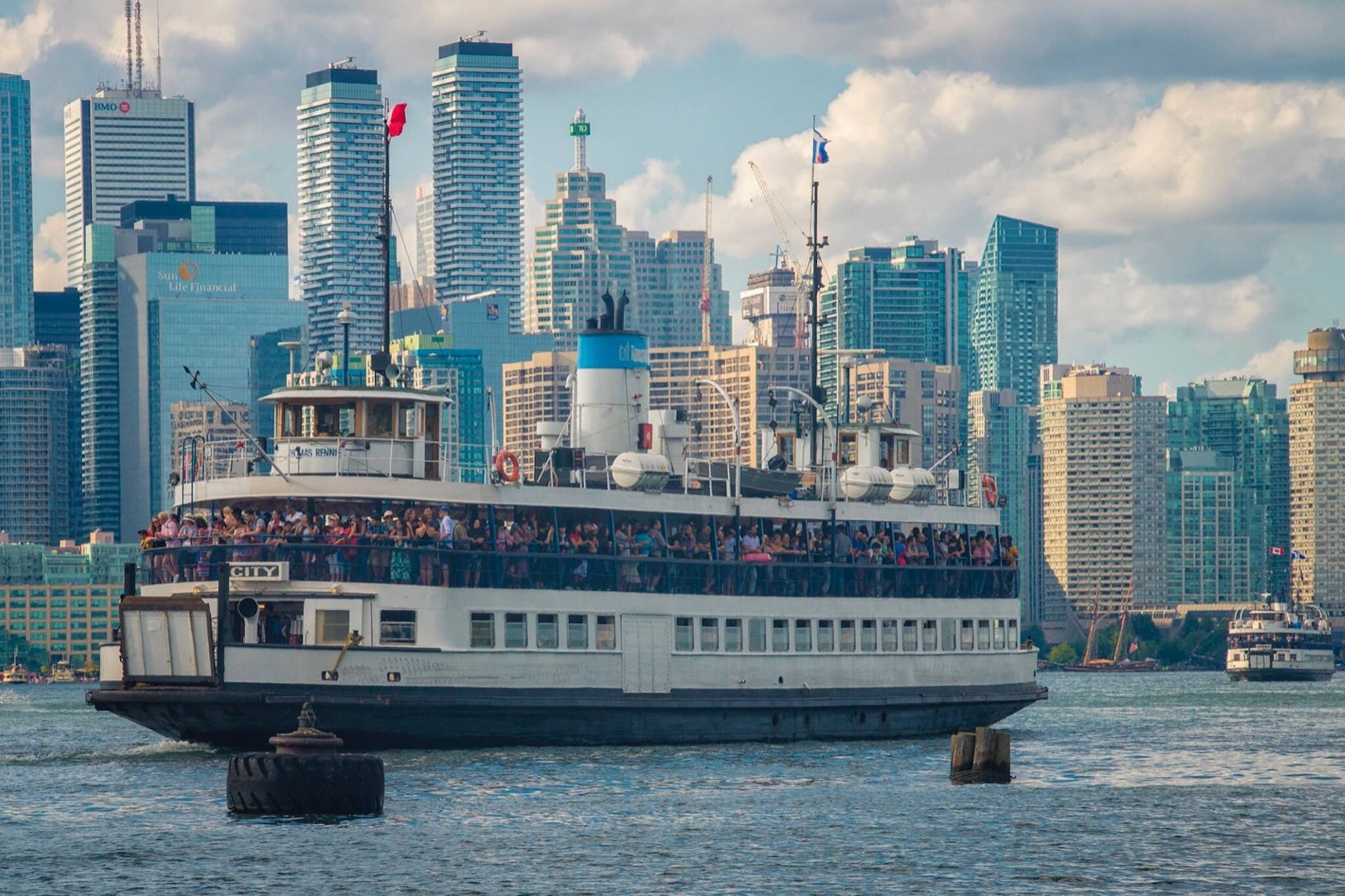
Brutal lineups for Toronto Island ferries expected to continue as new fleet delayed
Get ready for a couple more years of chaotic summer lineups for the Toronto Island ferries, because Toronto's plan to replace the city's aging ferry fleet has been delayed once again.
Every summer, pictures and videos of jam-packed lines at Jack Layton Ferry Terminal make rounds on social media — quickly deterring many people from making the short harbour crossing in the sweltering heat.
Toronto island ferries were a total mess again with brutal crowds this weekend https://t.co/GCI66pMefd #Toronto #Ferry
— blogTO (@blogTO) July 24, 2023
The City is currently attempting to improve access to Toronto Island Park by replacing its ancient ferry fleet with electric vessels and building supporting electrical infrastructure at Jack Layton Ferry Terminal.
Just last year, the city announced that it was expecting the arrival of the first electric ferry by the end of 2024 and the next one by mid-2025. However, the city now estimates that the first ferry will arrive in late 2025, and will be "phased into operation" by mid-2026, according to a report by the Star.
Crowds and wait times to get to the Toronto Islands were absolutely brutal this weekend https://t.co/2DT3jHewK5 #Toronto #TorontoIslands
— blogTO (@blogTO) July 4, 2023
Funding for the preliminary estimates has been secured for two of the four electric ferries — which are designed to carry 1,300 passengers — but funding for the other two ferries is subject to approval in future capital budgets.
In response to questions from the Star, the city confirmed that it would not meet its previous 2024 target for the new fleet of ferries.
According to the city's website, final design confirmation and construction of the two electric ferries are expected to take place in early 2024, while supporting electric infrastructure work at Jack Layton Ferry Terminal is expected to take place in late 2024 to 2025.
In early 2026, the city expects the commissioning process to start for the two electric ferries at Toronto Harbour, and by mid-2026, the two ferries will be phased into operation and start taking passengers.
The design of the electric ferries will "pay homage to the historical character of Toronto's ferry fleet," and preliminary costing estimates for the fully electric designs are upwards of $30 million per vessel.
Some of the improvements planned for the new fleet include more efficient passenger flow while boarding, upgraded accessibility with slightly wider ramps, enclosed areas for shelter, onboard temperature control, greater start/stop speeds, increased passenger capacity, and accessible washrooms.
Toronto's current fleet includes four diesel-fueled vessels and one heritage vessel. The four working ferries are between 57 and 88 years old and are beyond the average industry lifespan.
In August 2022, the Sam McBride ferry— which was acquired in 1939 — crashed into the Jack Layton Ferry Terminal, injuring 20 people with 912 passengers and six crew aboard.
Here's what's known about the Toronto Island ferry crash that injured 17 https://t.co/5m4qR7q1Jr #Toronto #TorontoIslands #TorontoFerry
— blogTO (@blogTO) August 22, 2022
The ferry fleet replacement aligns with the TransformTO Net Zero Strategy and the city's Multi-Year Accessibility Plan 2020-2024. The initiative lines up with the target of transitioning 20 per cent of the city's ferry fleet to zero emissions by 2025 and 50 per cent by 2030.
The new fleet with fully electric ferries is estimated to reduce 2,800 tonnes of greenhouse gas emissions and save over $1 million in fuel costs annually.
Latest Videos
Latest Videos
Join the conversation Load comments
